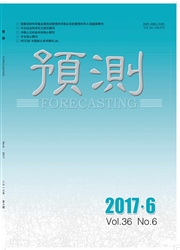

 中文摘要:
中文摘要:
在构筑基于总量控制的碳排放权交易制度进程中,最重要却又最棘手的问题是初始碳排放权的合理配置。本文首先对免费分配和公开拍卖这两种理论界探讨最多的初始配置方式进行评析,并结合我国实际国情,从不同维度进行政策考量,得出碳排放权交易制度建立初期,我国宜采用免费初始碳排放权配置方式;其次,采用建模分析法,对常用的基于历史绩效的“祖父制”及社会最优绩效的初始配置方式进行分析,并指出所存在的弊端;最后,提出了基于经济最优与公平兼顾的碳排放权初始配置策略,并在结论部分对我国初始碳排放权配置问题,提出了政策建议和研究展望。
 英文摘要:
英文摘要:
In establishing the carbon emission tap-and-trade system, the most important and difficult problem is about the rational allocation of initial carbon emission rights. Firstly, the two mostly discussed ways in the theoretical field in this regard, namely, free allocation and public auction, are evaluated and analyzed. Considering China' s specific situation, the conclusion is that, it is proper to adopt free allocation of carbon emission permits at initial stage in China from various dimensions of policy analysis. Secondly, an often-used Grandfather mechanism based on historical performances together with the social optical performance-based way in allocating the initial shares of carbon emissions is formulated and analyzed. Their respective drawbacks are also discussed in this part. Lastly, a carbon emission initial allocation strategy, taking both economic optimum and fairness into account, is proposed. Some policy suggestions and future research avenues are further given finally.
 同期刊论文项目
同期刊论文项目
 同项目期刊论文
同项目期刊论文
 Multi-Sector Fixed Asset Dynamic Input-output Problem Based On Singularly Perturbed Markov Game Theo
Multi-Sector Fixed Asset Dynamic Input-output Problem Based On Singularly Perturbed Markov Game Theo Infinite Horizon Linear Quadratic Stochastic Nash Differential Games of Markov Jump Linear Systems w
Infinite Horizon Linear Quadratic Stochastic Nash Differential Games of Markov Jump Linear Systems w Multi-Sector Fixed Asset Dynamic Input-output Problem Based On Singularly Perturbed MarkovGame Theor
Multi-Sector Fixed Asset Dynamic Input-output Problem Based On Singularly Perturbed MarkovGame Theor Infinite Horizon Linear Quadratic Stochastic Nash Differential Games ofMarkov Jump Linear Systems wi
Infinite Horizon Linear Quadratic Stochastic Nash Differential Games ofMarkov Jump Linear Systems wi Infinite time nonzero-sum linear quadratic stochastic differential games with state and control-depe
Infinite time nonzero-sum linear quadratic stochastic differential games with state and control-depe 期刊信息
期刊信息
